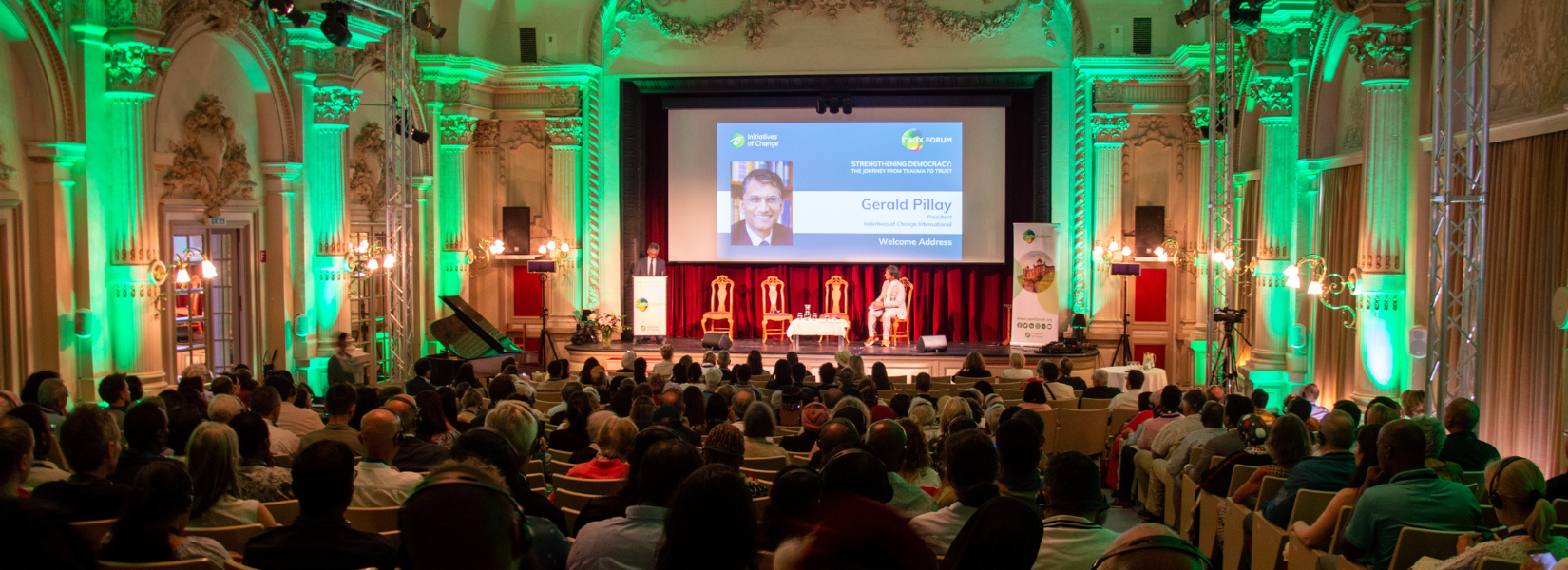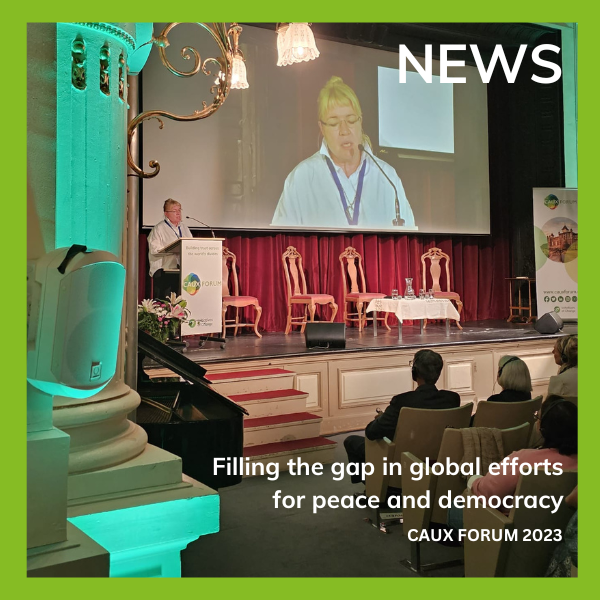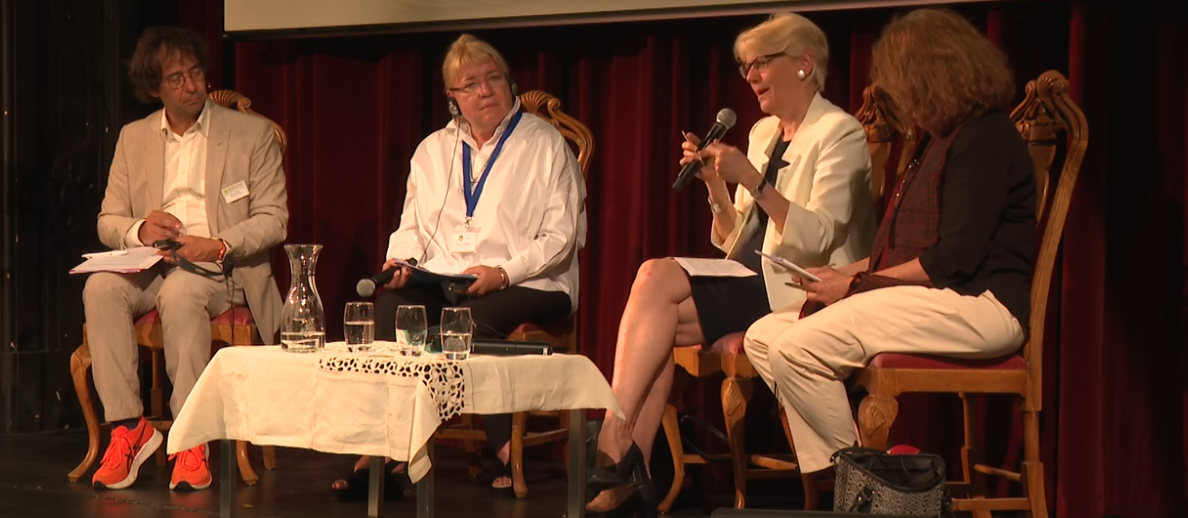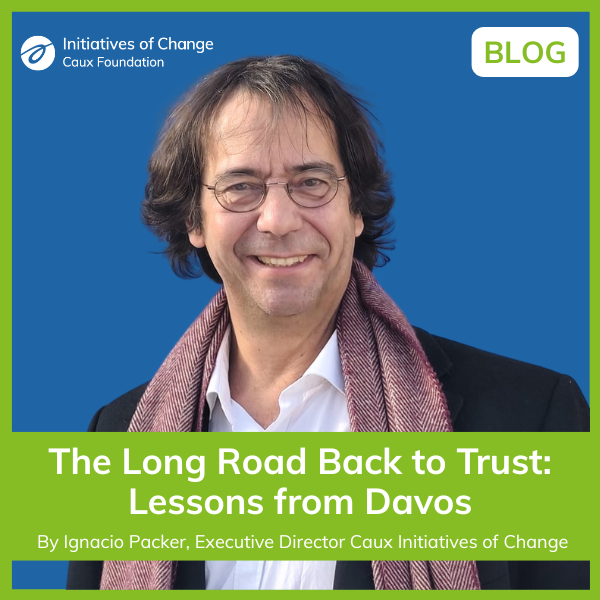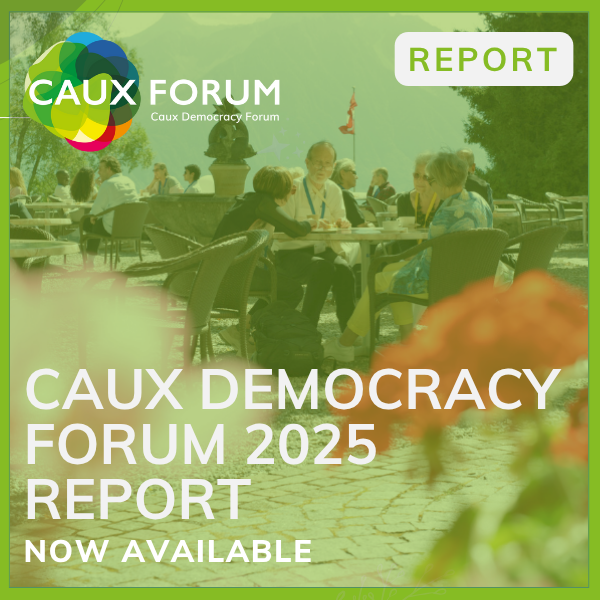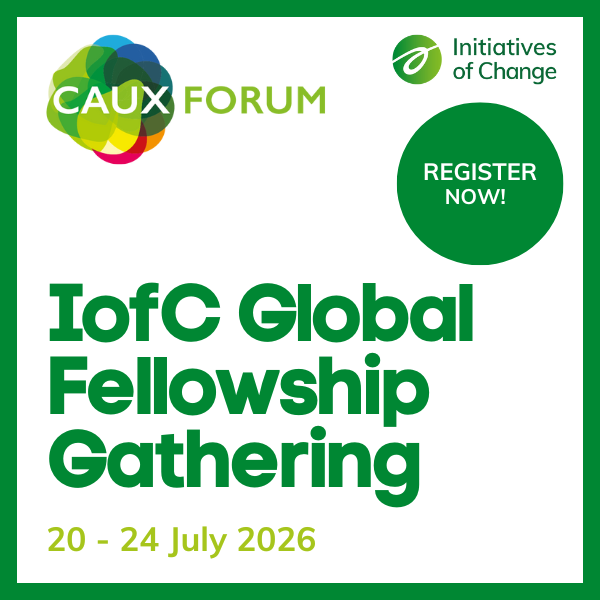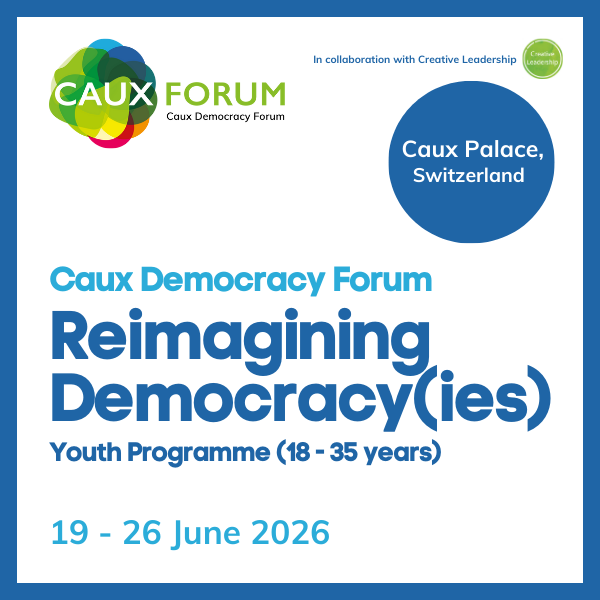Filling the gap in global efforts for peace and democracy
Caux Forum 2023 Opening Ceremony
28/11/2023
The Caux Forum 2023 was an unforgettable experience. It brought together 550 people from 72 countries, representing diverse cultures and sectors, with the aim of inspiring, equipping and connecting participants to build a just, peaceful and sustainable world.
This year’s Caux Forum was especially meaningful as it was the first time convened in person since the onset of the COVID-19 pandemic. New relationships were forged and old ones rekindled within the grounds of the historic Caux Palace. These connections are the very heart of the legacy of Caux. As Taiwan participant Hsu Shoufeng put it, ‘To share concerns with delegates from 72 countries is a reminder of human solidarity.’
The 2023 forum offered a wide range of dialogues and workshops focusing on two pressing themes: Healing the Wounds of the Past and Trust and Integrity in Democracy. Against the backdrop of these themes, Initiatives of Change welcomed expert speakers to the Caux stage, their collective experience and wisdom serving as a foundation for dialogue, ideation and inspiration.
________________________________________________________________________________________________________
‘Caux provides an exceptional setting. It allows us to see beyond political rivalries and polarization. It gives us the space to think, exchange views and develop new lines of action. Caux connects individual and collective action and thus fills a gap in the current landscape of global efforts for peace and democracy.’
Rea Gehring, Minister / Deputy Head of the Peace and Human Rights Division, Swiss Department of Foreign Affairs
The Caux Forum 2023 Opening Ceremony set the tone for the conference with the theme, ‘Strengthening Democracy: The Journey from Trauma to Trust.’
In front of an international audience who had come to Caux or joined online from more than 70 countries, IofC International President Gerald Pillay, kicked off the ceremony with reference to the state of the world, growing threats to democracy and the devastating conflict in Ukraine: ‘War never brings real victories, it only hurts and brings violence and hatred to the next generations. As a team, how can we collaborate to march for world peace? Can we be the symbol for a new peacemaker or changemaker to the global community?’
Jacqueline Coté, President of Caux Initiatives of Change, highlighted how climate change, population displacement, scarcity of public goods and pandemics, coupled with conflicts in many parts of the world, have shown that we are all interconnected. She went on to stress the significant impact Initiatives of Change can have: ‘We bring you down to the individual level, a level that is within each person’s reach. Change starts with oneself. If this is internalized, change will happen in the family, the community, the country, the region and end up influencing the global agenda.’
The opening ceremony also featured Rea Gehring, Minister and Deputy Head of the Peace and Human Rights Division of the Federal Department of Foreign Affairs. ‘Caux is a unique place,’ said Ms Gehring when she addressed the audience. ‘Initiatives of Change has established a diverse and creative platform to explore how we can optimize collective action through our individual efforts. This year's theme couldn't be timelier.’ At a time when ‘division and a lack of trust between people have grown deeper’, Ms Gehring also stressed the importance of constant dialogue to make democracy work. "Caux provides an exceptional setting. It allows us to see beyond political rivalries and polarization. It gives us the space to think, exchange views and develop new lines of action. Caux connects individual and collective action and thus fills a gap in the current landscape of global efforts for peace and democracy."
As in previous years, the Federal Department of Foreign Affairs had brought delegations from several African countries to the Caux Forum and we are grateful for our collaboration with the FDFA which has been going strong for more than 15 years.
The ceremony’s keynote speaker was Elena Zhemkova, the Co-founder and Executive Director of Memorial, a Russian human rights organization shut down by the Russian Government in 2021. Memorial was awarded the Nobel Peace Prize in 2022, along with Ales Bialiatski of Belarus and the Centre for Civil Liberties in Ukraine.
Ms Zhemkova described honesty as ‘a tool for healing historical wounds’ and spoke about her experience in implementing that tool, and the challenges it represents. Describing the origins of her work with Memorial, she openly questioned why it had taken her so long before she began to dig deeper and learn more about the victims of repression in her country. "Did I really know nothing? Or did I not want to know?"
In the face of difficult situations, she encouraged the audience to find new ways to reclaim the truth about the past and create ‘a future that upholds the principle of non-violence, respect for human rights and the importance of every human life in human history.’ In a reference to Caux, she concluded with the image of climbing a mountain and the hope that, even though the peak might not be reached, everybody can make a contribution: "Peace is at the centre of everything!"
Ignacio Packer, Executive Director of Caux Initiatives of Change, then moderated a panel discussion with Elena Zhemkova, Mô Bleeker, Independent Senior Advisor and former Special Envoy for Peace and Prevention of Atrocities for the Swiss Federal Department of Foreign Affairs, and Corinne Momal-Vanian, Executive Director of the Kofi Annan Foundation.
Mô Bleeker stressed the importance of dealing with the legacy of conflicts and atrocities through acknowledging what has happened and taking responsibility to address the consequences. ‘If we seriously wish to engage in healing the wounds of the past, the how is as important as the what,’ she explained. ‘In today's world the constructive management of diversity is not only a challenge but also one of our greatest opportunities.’
She concluded by sharing a quote from the preamble of the Swiss Constitution: “Let’s all together commit to promote a world where the strength of our global community is measured by the well-being of its weakest members,” and by calling on the audience to be “courageous, ethical and creative”.
Corinne Momal-Vanian emphasized the role of youth and urged the audience to remember that the same young people set aside when peace agreements are negotiated will probably be the ones implementing them. ‘Young people, better than politicians, have a capacity to envision the future. They are able to project themselves and they must. They have a key ability to play an important role in reconciliation efforts.’, she explained in her passionate speech and underlined the importance of making young people aware of ethical frameworks, enabling leaders to make just decisions, to take responsibility for mistakes and to put people back into the centre.
The arts have always played an important part in conveying Initiatives of Change's message and Norwegian musician Sveinung Nygaard added an artistic touch by performing one of his compositions. The Opening Ceremony was wrapped up by Nick Foster from the United Kingdom, thanking the audience and the speakers.
We are grateful for this summer and the many enriching moments with those who came to Caux. Colorful, diverse, creative, inspiring - the 2023 Caux Forum was the perfect proof that we are all connected, wherever we come from and whoever we are. As one participant summed it up:
This is what I dream humanity could be about: people being patient with each other, people appreciating the diversity we have.
________________________________________________________________________________________________________
Discover the full Caux Forum 2023 highlights report
Watch the full replay of the Opening Ceremony on our YouTube channel
